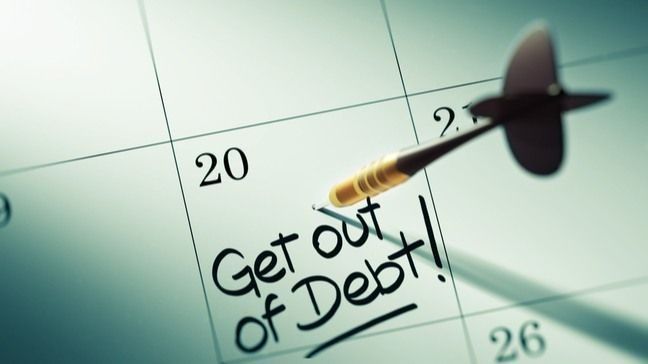Finance
Debt Servicing: How to Wean Yourself Off Debt

There is nothing wrong with taking a loan, as some people suggest. Sometimes taking a loan becomes a lifesaver, mainly when no other options exist. You may need a loan to pay your fees, finance your new home or business, buy a vehicle, or sort out emergencies. What matters is debt sustainability. How sustainable are the debts you are incurring?
Some people find themselves in an unending debt payment situation making their lives miserable. This is not because they misused the money, but because some loans come with high-interest rates and other conditions, making them very difficult to pay. In the end, you may have to spend a huge chunk of your salary on debt repayment to the detriment of other important life issues. If you are in debt for any reason, we have some excellent ways to wean yourself from it.
Can debt affect your life negatively?
Being in an unsustainable debt (very high debt-to-income ratio) can negatively affect your life. It means you may live your entire life paying loans. That aside, it affects your eligibility to take other legal loans. Most lenders wouldn’t grant loans to persons with a debt-to-income (DTI) ratio above 43 percent. Your DTI is calculated by dividing your total monthly debt payment by your gross monthly pay multiplied by 100%.
If you earn $2000 a month and have a monthly debt payment of $700, your DTI will be 35 percent. You will need a DTI of less than 37 percent to access most mortgage loans. Meaning anything above that wouldn’t only make it difficult to get a mortgage loan, but it will also be expensive. With an expensive mortgage, it may be difficult to pay off the loan during your active working years.
But there is an option when that happens. During retirement, you can take a reverse mortgage with the equity you have in your home. Use this reverse mortgage calculator to check how much reverse loan you qualify for.
That notwithstanding, you should always put your debts in check and work towards being debt free. Here are some ways workable ways to take yourself off all those debts.
Know your total debt and bills
To develop a better loan offsetting strategy, you need to know your total debt and bills for a month. It’s all about knowing how to budget while paying your debt. You have to put together all loans, including mortgage loans, credit card debt, vehicle loans, and student loans, including the interest rates. Most debtors pay loans through automatic monthly deductions by the lenders, the same monthly income used for paying bills and taking care of other expenses.
Once you know your loan balance, how much you pay monthly, and monthly expenses, you can adjust or allocate extra funds for specific commitments. Afterward, you can apply the following strategies.
Pay more monthly
After knowing all your total debt, monthly payment, and monthly expenses, correspond it to your salary and strike the difference. You can channel the extra funds into paying your debt if you still have space to spend. With this, talk to your lenders to increase your monthly payments from minimum to higher. This helps in different ways, including reducing the repayment period and interest. For example, if you pay $700 a month on a loan and have five years to pay, increasing it to $850 a month means you can settle the debt in about four years.
Use the debt snowball strategy.
One of the effective strategies for debt reduction and faster debt payment is by snowballing. So, after listing all your loans, classify them into high and low-value debts. Debt snowball allows you to pay your debt from the smallest to the largest. With it, your lenders allow you to offset the balance of your smallest loans one after the other. After paying all the smallest debts, you move to the next level, which now becomes the new smallest. By the time you realize it, you will be almost done with all your debts.
Debt refinancing
Debt refinancing is taking a loan with a small interest rate to settle your high-interest loans. So, if you have a very high-interest loan, you can contract a cheaper one with low interest and better payment terms to settle the existing one.
Reduce your expenses
You can’t continue to make huge expenses and live profligatory when you have huge debts to pay. You should cut down on some spending and live within your means. To ensure this, list all your monthly expenses, and do away with or cut down unnecessary ones.
Conclusion
Having debt isn’t necessarily a bad thing; it’s how you handle your debt that matters. The more responsible choices you can make, the better off you will be in the long run.





















































